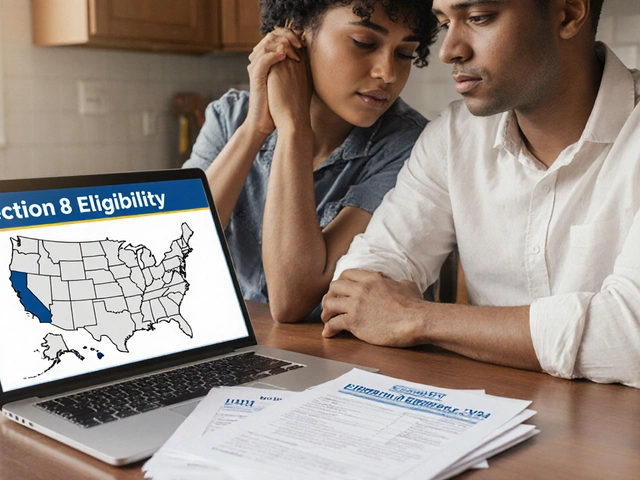How to Pay Your Property Registration Fee in NYC: Easy Steps & Smart Tips

Paying your property registration fee in NYC feels like a maze if you haven’t done it before. You’re not alone if you’ve stared at a stack of paperwork and wondered where that fee fits in, or if you’re missing a step that could hold up your property closing.
New York City doesn’t make things easy with all its forms and rules. But here’s the deal: you’re paying for your property to be officially recorded—so the city knows who owns what, and you get legal proof that the place is truly yours. No official registration, no real ownership in the eyes of NYC.
Before you whip out your debit card or checkbook, you need to know the exact fee you owe. This depends on your property type, price, and sometimes, the borough. If you’re buying a condo in Queens or a brownstone in Brooklyn, your fee could be totally different. The city has actual calculators online, not just guesswork—super handy and accurate.
- What’s Actually Included in the Registration Fee?
- How to Calculate Your Property Registration Cost
- Ways to Pay: Online, In Person, and by Mail
- Essential Documents You’ll Need
- Common Issues that Trip Up First-Timers
- What Happens After You’ve Paid?
What’s Actually Included in the Registration Fee?
When you hear “registration fee” in NYC, it’s not just one single charge. It’s a mix of different city-mandated costs tied directly to making your property purchase legit in the records. The main fee is usually the “deed recording fee,” but sometimes people lump in the mortgage recording tax, filing fees, and even service charges, depending on the deal.
Here’s what’s usually part of the bundle:
- Deed Recording Fee: Paid to the NYC Department of Finance to officially record your ownership. This makes your ownership public and legally recognized.
- Mortgage Recording Tax: If you’re taking a mortgage, this adds to your cost. It’s based on your loan amount and applies mostly to condos and multi-family homes—co-ops usually skip it.
- Document Preparation & Filing Fees: Small charges for the paperwork and processing, but they add up. These include certifying documents, notary fees, and digital copies.
- Real Property Transfer Tax: This is a big one for buyers at closing, especially on high-price properties. Technically, it’s separate, but buyers sometimes roll it in to keep things simple.
Check out how these stack up when you’re buying a place:
| Fee Type | Typical Cost (Residential) | Who Pays? |
|---|---|---|
| Deed Recording Fee | $75 to $200+ | Buyer |
| Mortgage Recording Tax | ~1.8-1.925% of loan (condos/multi-family) | Buyer (if mortgaged) |
| Document Filing Fees | $25 to $250 | Buyer/Seller (varies) |
| NYC Transfer Tax | 1-1.425% of purchase price | Usually Seller (sometimes Buyer) |
The key thing? Not all properties have every fee. For example, co-ops don’t pay the mortgage recording tax, and some deals roll document fees into legal charges. Always ask your lawyer or title company for a breakdown of what exactly you owe at closing—don’t just guess, because overpayments or missed fees can cause delays.
How to Calculate Your Property Registration Cost
Getting the right number before you try to pay the property registration fee in NYC saves you from late fees and any surprises at closing. Here’s what you actually need to look at.
This fee isn’t one-size-fits-all. It changes mainly based on the price of your place and the type of property. Co-ops, condos, private homes, and multi-family buildings all have their own numbers. Plus, the city throws other charges into the mix, like the NYC RPTT (Real Property Transfer Tax) and sometimes the Mansion Tax if your place is fancy enough (over $1 million, for those playing at home).
The New York City Department of Finance actually has an online calculator for the Real Property Transfer Tax and lots of guides for other regular fees. You can check your exact cost with these online tools so you don’t have to guess.
| Property Transfer Price | RPTT Rate (Residential) | Registration Fee Example |
|---|---|---|
| Up to $500,000 | 1.0% | $500 (approx.) |
| Over $500,000 | 1.425% | $1,000 (approx.) |
Besides the RPTT, here’s what else to watch for:
- Deed recording fee: About $125 for condos or homes.
- Mortgage recording tax: Kicks in only if you have a mortgage. For condos and homes, it’s between 1.8% and 1.925% (depending on amount borrowed).
- Mansion Tax: If the sale is $1 million or more, tack on another 1%.
So, add up your transfer tax, deed recording, mortgage tax (if needed), and Mansion Tax (if it applies). Always check the city calculator or confirm with your closing attorney. Don’t try to wing it, or you could easily miss a thousand bucks in fees.
The best tip? Screenshot or print out your calculation. If the city comes back with a different number, you’ll have all the steps laid out to check where things went wrong.
Ways to Pay: Online, In Person, and by Mail
When it comes time to submit your property registration fee in NYC, you actually have a few solid options. There's no "secret handshake"—it's just a matter of what works best for you. Let's break down each way to pay, so you can pick whichever is most convenient (or least annoying).
1. Paying Online: Most folks choose the NYC ACRIS (Automated City Register Information System) portal. Super easy. You’ll upload your registration documents, pay by credit card, or use an e-check with your bank routing and account number.
- Go to the NYC ACRIS site: NYC.gov/finance/acris
- Follow steps for "Record a Document."
- Upload closing documents and check fee calculation.
- Select your payment method (Visa, MasterCard, American Express, Discover, or e-check).
- Once you pay, save the digital receipt. They email you one too, but screenshot it—stuff does get lost.
The online approach runs 24/7 and cuts waiting in lines. Just know, credit cards are hit with a 2% service fee. E-check? No extra fee. Online filings get processed fast—sometimes within a business day if you upload early.
2. Paying In Person: Some people just like seeing a real human when they hand over this much cash. That’s still an option at any borough City Register Office.
- Bring your documents and photo ID.
- You can pay by certified check, money order, or even a regular check (payable to NYC Department of Finance). No cash or card in person—save yourself the awkward moment.
- Go early to dodge long lines. Manhattan’s register office especially fills up late morning on Wednesdays and Fridays.
- Offices are open Monday to Friday, 8:30 a.m. to 4:30 p.m. City holidays? Doors locked.
You’ll get a stamped receipt right away, which you’ll need for your closing packet or if anyone questions your payment later.
3. Paying by Mail: If you’re not on a tight deadline, you might prefer mailing in your fee and documents.
- Mail your forms, check (certified or regular), or money order to your borough’s City Register address—listed on the official site.
- Don’t forget a return envelope if you want your stamped receipt back.
- Processing by mail? You’re usually looking at 7–10 business days, sometimes longer if you hit a busy season (think spring and fall closings).
Here’s a quick comparison to keep things straight:
| Method | Payment Types Accepted | Processing Time | Extra Fees |
|---|---|---|---|
| Online (ACRIS) | Credit Card, E-Check | 1–2 Business Days | 2% service fee for credit cards |
| In Person | Certified Check, Money Order, Regular Check | Immediate | None |
| By Mail | Certified Check, Money Order, Regular Check | 7–10 Business Days | Postage |
Picking the right method really depends on your comfort zone, timing, and whether or not you like waiting rooms. Just double-check you’ve got all your paperwork before paying, because submitting incomplete stuff is the top reason filings are rejected.

Essential Documents You’ll Need
Don’t let missing paperwork slow you down when it’s time to pay your property registration fee in NYC. The city is strict about documents, and even one small mistake can bounce you back to square one. Here’s what you’ll need—totally non-negotiable if you want a smooth closing.
- Deed: Whether you’re buying or transferring a property, you’ll need the fully filled-out and signed deed. If you’re buying, this comes from the seller or their attorney. Double-check that all details match your ID and the contract.
- RP-5217 and TP-584 Forms: These are New York’s well-known transfer documents. RP-5217 is a transfer report; TP-584 deals with transfer tax. No transaction gets registered without these forms, and you can download them directly from NYC’s official site.
- ID and Proof of Address: Your government-issued photo ID is a must—think valid driver’s license or passport. If you’re an LLC or trust, bring those papers too. Have a recent utility bill handy if you’re asked to prove your current address.
- Closing Statement or HUD-1: This sums up all the money stuff around your transaction and will be needed for records or if the forms ask for specifics.
- Payment: NYC usually takes certified checks, money orders, or electronic transfer if you’re paying online. The check must be made out to the "NYC Department of Finance," and don’t even try to use personal checks—they’ll bounce you.
- Power of Attorney (if applicable): Handling things for someone else? You’ll need a notarized POA and copies of both your and the owner’s IDs.
Got a co-op? Heads up: you might need different documents, like Board approval or proprietary lease copies, but most homebuyers will be fine with the list above.
Here’s a quick reference table so you don’t leave anything behind on your big day:
| Document | Required For | Tips |
|---|---|---|
| Deed | All property buyers/recipients | Original ink signatures; double-check legal names |
| RP-5217 & TP-584 Forms | Every property transfer | Fill out both—even if it’s a gift |
| Photo ID | Individual buyers/sellers | Bring a backup just in case |
| Closing Statement (HUD-1) | Purchase transactions | Ask your attorney or broker if you can’t find it |
| Certified Check/Money Order | Paying registration fee | No personal checks; confirm amount beforehand |
| Power of Attorney | Authorizing another to file | Needs notary stamp—make sure it’s current |
One more tip: make extra copies of everything, because the city sometimes keeps originals—and nobody wants to waste time tracking down missing paperwork later. You’ve got this.
Common Issues that Trip Up First-Timers
Getting through New York’s registration process is stressful enough, but first-timers often hit the same roadblocks again and again.
- Wrong Fee Amount: One of the most common mistakes is paying the wrong property registration fee. People either use old fee charts (these change almost every year) or miss an extra city tax that gets lumped in. Always check NYC’s official calculator before making any payment.
- Missing Documents: Forgetting to attach the right paperwork—like the signed deed, tax forms, or proof of identity—can delay the whole process. The city won’t even process your registration until everything’s in order. Double-check the checklist from the NYC ACRIS portal before submitting anything.
- Incorrect Payment Method: Some folks assume they can use any payment type, but NYC only accepts certain options for the property registration fee, usually certified checks, money orders, or electronic bank transfers. Credit cards almost never work for this.
- Submission to the Wrong Office: Mailing paperwork to the wrong borough office or, worse, the state office instead of the city, is another major slip-up. Every borough has its own recording office, and sending stuff to the wrong one can set you back at least a few weeks.
- Names That Don’t Match: If the buyer’s name on the deed doesn’t match the ID or mortgage papers exactly, expect a rejection. The city’s strict about typos, missing initials, or even small discrepancies.
If you’re curious just how common these trip-ups are, NYC’s Department of Finance actually reports the top reasons for rejected registrations every year. Here’s a snapshot from 2024 so you know what usually goes wrong:
| Issue | Percent of All Rejections |
|---|---|
| Missing Documents | 32% |
| Wrong Fee Amount | 21% |
| Payment Errors | 19% |
| Name Mismatch | 15% |
| Other (wrong office, unsigned forms) | 13% |
Avoiding these headaches takes a bit more double-checking, but it’ll save a lot of frustration (and maybe keep your closing from being delayed).
What Happens After You’ve Paid?
So you’ve just paid your property registration fee. Now what? Honestly, this is the part where lots of folks expect instant action, but NYC does things in its own time. Here’s what you should know, step by step.
- Receipt Email or Printout: After your payment, you’ll usually get a payment confirmation—by email if you paid online or as a physical receipt if you did it in person. Keep this! If you ever need to prove you paid, this is your backup.
- Document Submission: Next up, your closing agent or attorney will send the property deed and payment proof to the NYC Department of Finance (DOF) or, if it’s co-op paperwork, to the county clerk. If you missed a form or made a typo on your deed? Expect a call or email to clear it up before they process anything further.
- Processing Time: The DOF usually takes from 2 to 8 weeks to record the deed and update property records. This timing is real—closings in peak homebuying season might be closer to 8 weeks. Nothing is official until the records reflect your name.
- Official Deed Issuance: Once everything checks out, the city will mail you the official recorded deed. It shows your name, property address, and recording date; for apartment units, co-op stock certificates come from the building’s management.
- Tax Status Updates: After registration, your name lands on the city’s property tax bill. If you bought a place with outstanding taxes, you’ll see those in your first year’s statement—no way around it. Make sure you check the city’s ACRIS site to confirm your name is listed within a few weeks.
If you’re curious about how long each part usually takes, here’s a quick guide:
| Step | Typical Time Frame |
|---|---|
| Email/Receipt after Payment | Immediately |
| Deed & Paperwork Submission | 2-3 business days |
| DOF Recording Process | 2-8 weeks |
| Deed Mailed to Owner | 1-2 weeks after recording |
If anything feels off—like a delay longer than 8 weeks or missing mail—call the NYC Department of Finance. Don’t just wait and hope it sorts itself out. Problems found late can make reselling or refinancing a real pain.
One last tip: if your payment was part of a larger property registration fee package handled by your attorney or agent, make sure they show you proof of every step. New York City isn’t known for forgiving paperwork mistakes, and catching a slip-up early saves loads of headaches down the road.









Write a comment